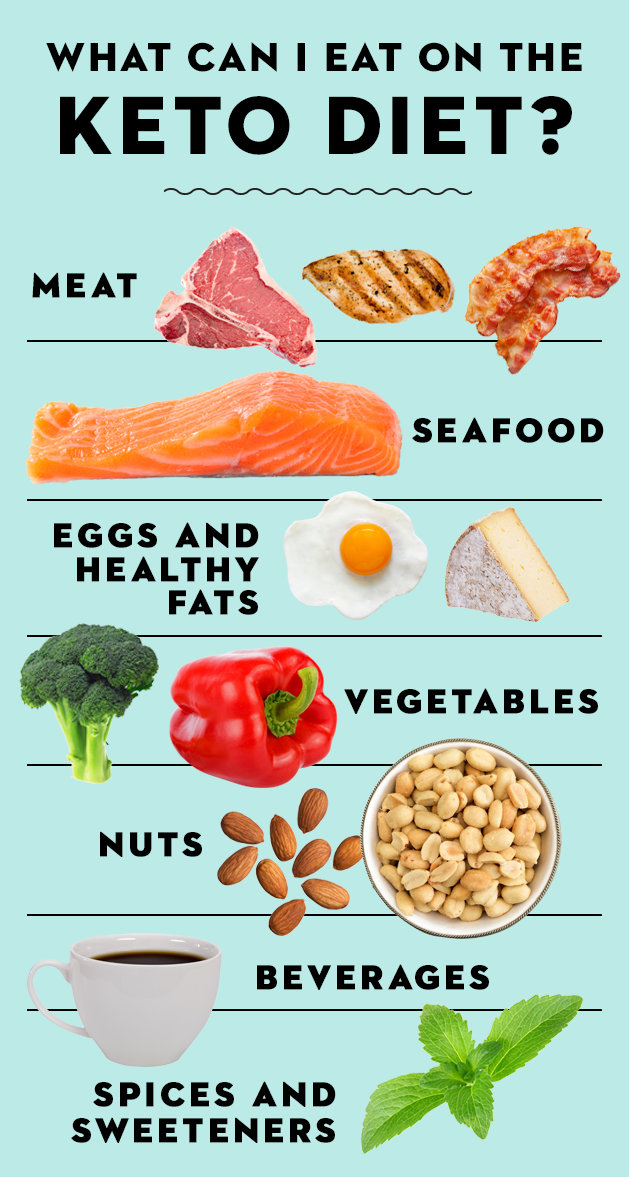News Blast
Your daily dose of trending news and updates.
Keto or Not? The Great Low-Carb Debate
Discover the truth in the Keto debate! Explore the benefits, myths, and science behind low-carb diets. Which side will you choose?
Keto vs. Low-Carb: What’s the Difference?
The terms Keto and Low-Carb are often used interchangeably, but they refer to distinct dietary approaches. The Keto diet is characterized by an extremely low carbohydrate intake, typically around 5-10% of total daily calories, with a high emphasis on fats (about 70-75%) and moderate protein consumption (around 20-25%). This macronutrient distribution aims to induce a state of ketosis, where the body burns fat for fuel instead of glucose. In contrast, a Low-Carb diet generally allows for a greater percentage of carbs, often ranging from 10-30% of total calories, making it a more flexible option for individuals who may not want to adhere to the strict limits of a Keto lifestyle.
Another key difference lies in the health benefits and goals associated with each diet. The Keto diet is frequently praised for its potential in promoting weight loss, improving insulin sensitivity, and managing conditions like epilepsy and metabolic syndrome. On the other hand, a Low-Carb diet can also contribute to weight loss and better blood sugar control but may be easier to maintain for those seeking long-term dietary changes without the stringent rules of Keto. Ultimately, choosing between these diets depends on personal preferences, health goals, and lifestyle considerations.

The Science Behind Ketosis: Is it Right for You?
The state of ketosis occurs when your body switches from burning carbohydrates for fuel to burning fats. This metabolic shift typically takes place when carbohydrate intake is significantly reduced, prompting the liver to produce ketones from fats, which then become the primary energy source. Many individuals adopt a ketogenic diet to achieve weight loss, improve mental clarity, and enhance energy levels. However, the transition into ketosis can come with side effects such as fatigue, headaches, and irritability, often referred to as the 'keto flu'. Understanding how your body reacts to these changes is crucial in determining whether ketosis is suitable for you.
It's important to evaluate your personal health goals and lifestyle before diving into a ketogenic approach. Ketosis may benefit those seeking rapid weight loss or those with specific medical conditions, such as epilepsy or type 2 diabetes. However, it's not one-size-fits-all; some people might experience adverse effects or find it challenging to maintain the diet long-term. Consulting with a healthcare professional or a nutritionist can help you assess whether a ketogenic diet aligns with your needs, preferences, and overall health. Ultimately, understanding the science behind ketosis empowers you to make informed dietary choices.
Common Myths About the Keto Diet Debunked
The ketogenic diet, commonly referred to as the keto diet, is surrounded by a multitude of myths that can mislead individuals interested in adopting this low-carb lifestyle. One prevalent myth is that the keto diet forces the body to rely solely on fat for energy, leading to muscle loss. In reality, when done correctly, the keto diet can help maintain muscle mass while promoting fat oxidation. Additionally, it supports metabolic efficiency, allowing the body to burn fat more effectively without sacrificing lean body tissue.
Another common misconception is that the keto diet is unhealthy and can lead to various health issues, including heart disease. However, numerous studies have shown that the keto diet, when properly followed, can improve cholesterol levels and reduce the risk of heart disease by increasing HDL (good cholesterol) and lowering triglycerides. It's essential to focus on consuming high-quality fats, such as avocados and nuts, while minimizing processed foods to ensure a balanced intake of nutrients. By debunking these myths, individuals can better understand the potential benefits of the keto diet and make informed dietary choices.